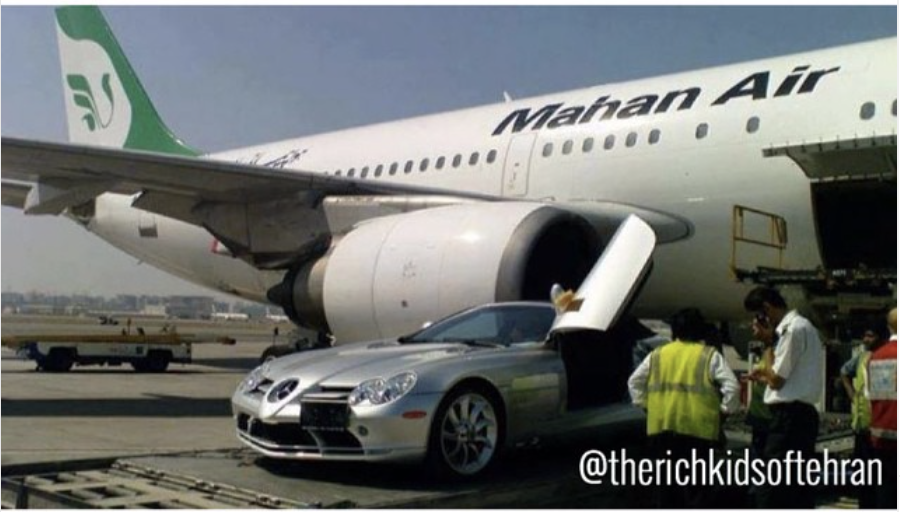2019 seems to have been a record year for mass protests by citizens marching against national corruption – at least 10 countries have had massive protests in the last few months, many of which are ongoing.
Corruption at the national level is perpetrated by politically exposed persons (“PEPs“) who have access to the country’s coffers, and are often paid bribes for contracts, for work or favours, and who then use their positions of power to exit proceeds of corruption to other countries.
A Europol Report on Trends published in 2015, noted the increasing threat associated with wealth disparity (e.g., the rich getting richer) which they predicted would cause citizens to be more willing to accept criminal activities that target the wealthy if those crimes deprive the rich of their wealth, or that even the playing field.
The protests have a few things in common: calls for an end to corruption; addressing hunger; and the rising costs of living – all tied to wealth disparity. On the financial institutional side, the protests will accelerate the need for PEPs to move their ill-gotten gains to safe countries. For Canada, the highest risk is proceeds of corruption from Iran entering Canada through MSBs registered in Vancouver and Ontario, which follow a well-known process of laundering money for wealthy Iranian PEPs through Dubai.
Iran
Protests in Iran tied to corruption (and worsening economic conditions) have been ongoing for two years, and ramped up in early 2019. Iran has a significant wealth disparity issue with a few select PEPs who are very wealthy that live in North Tehran, and the rest who are not. Inflation grew by 30% in one year and the lack of federal banking regulations is impacting the economy, as are sanctions. Many Iranians are unemployed and one third of Iranians have no access to drinking water.
Recently, in an attempt to calm the storm, Supreme Leader Ayatollah Ali Khamenei, a PEP, announced a new head of the judiciary, a PEP named Ebrahim Raeesi, with a mandate to clean up systemic corruption in Iran, starting with judges and the legal system. In Iran, judges are bribed to render decisions – the party who pays the most, wins a litigation. The former head of the judiciary, also a PEP, wrote a public letter essentially accusing the new head of the judiciary of making anti-corruption statements just for political gain but he also said he holds lots of secrets about powerful Iranians, implying that many powerful Iranians have financial crime secrets to protect.
The picture in Iran is not likely to improve, which means there will be increased pressure to move money to Vancouver. Over 33% of Iranians live in absolute poverty; 6% are starving, while children of PEPs use Instagram to show off things like an 18k gold finishing (and gold on the outside here) on an exotic imported car, mansions and imported exotic watches. Below is a picture of a luxury car imported by a PEP to Tehran on Mahan Air, which has been a US sanctioned airline since 2011, which the US Treasury found has ties to terrorist financing.


Lebanon
A different situation is taking place in Lebanon. While the protests are based on corruption, they also stem from concerns in respect of the future prospects of the country and the concern over the influx of Syrian refugees into Lebanon five years ago which the UNHCR says upsets the religious balance and puts a strain on the economy. The demonstrations have brought hundreds of thousands of Lebanese to the streets, paralyzing the country’s transportation and banking system and forcing the resignation of Prime Minister Saad Hariri, also a PEP. The country suffers from long-term shortages in government services including education, Internet access, electricity and water.
To politicians: “We are the popular revolution, you are the civil war.â€#Lebanonrevolution #لبنان__ينتÙض #طرابلس #طرابلس_عاصمة_الثورة pic.twitter.com/ItfUtvZ1Km
— Timour Azhari (@timourazhari) November 2, 2019
Iraq
Like Lebanon, citizens have toppled the government of Iraq in protests against so-called “elites” (the wealthy) and corruption. Iraq has additional concerns prompting the protests, including Shiite and Shia angst, and anti-Iranian sentiment. PEP Sayyid Ali Husaini al Sistani, the leader of the Shia who lives in Iraq, issued a statement rejecting interference in Iraq’s protests by Ayatollah Ali Khamenei which would have upset Iran, prompting a general of the Iranian Revolutionary Guard, Qasem Soleimani, to request a meeting with al Sistani, throwing more fuel on the flames in Iraq.
Unbelievable.
— Joshua Potash 🆘 (@JoshuaPotash) November 2, 2019
The anti-corruption protest in Iraq today was off the charts.
pic.twitter.com/Sy2DiDtaDx
Romania
Romania has had protests over the last two years related to corruption in the country and the role of prosecutors. The protesters want an end to corruption.
Chile
Chile has had 12 straight days of protests nationwide, directly related to wealth disparity with people demanding changes to the country’s economic and political system for fairness and inclusion. The president, PEP Sebastián Piñera is a billionaire; in response to the protests he replaced eight ministers and implemented emergency measures, including a tax on the rich. Wealth disparity is worse in Chile than in many other places, with 1% of its population earning 33% of the wealth. Over a million people marched in protests this week in Chile.
One million people in the streets of Chile for the 12th day of protest.
— Mike Hudema (@MikeHudema) October 26, 2019
Unprecedented protests against the government’s pro-austerity, pro-privatisation measures.
You want change? Show up for it.#ChileProtests #ActOnClimate #GreenNewDeal. We rise together. pic.twitter.com/jfui26TsDR
Argentina
Argentina has had several months of protests, most recently against the IMF’s policies imposed on the country, wealth disparity and food insecurity. With respect to food insecurity, severe food shortages have affected the country for several years. Inflation in Argentina is at 47% and in three days, the Central Bank has twice put currency controls in place, most recently at US$50 per person to stop flight of capital to foreign countries, in part because of the extreme high risk of PEPs moving proceeds of corruption out of Argentina.

Haiti
Nationwide protests in Haiti have been going on for six straight weeks over corruption and economic conditions, with demands for the resignation of the President. Haiti also faces serious food insecurity concerns, affecting over 3 million people. The US has stepped in to address the food insecurity issues in recent weeks.
Impressive images from #Haiti, massive protests all around the country demanding accountability from the government of @moisejovenel. Violent repression has been the government response, but people keep demonstrating with a lot of courage #Brave pic.twitter.com/4YrpbM6bsx
— Erika Guevara-Rosas (@ErikaGuevaraR) October 28, 2019
Bulgaria
Bulgarians have been protesting against a new prosecutor, Ivan Geshev, elected by a group of judges to be Bulgaria’s head lawyer. He has been called a pawn of the oligarchs and protesters allege he is in power merely to protect the Bulgarian mafia.
Ecuador and Brazil
Ecuador and Brazil have both also had significant protests in 2019, against government policies and inequality.
This post uses material that was crowd-sourced from suggestions on Twitter and we thank those who provided information for this post.